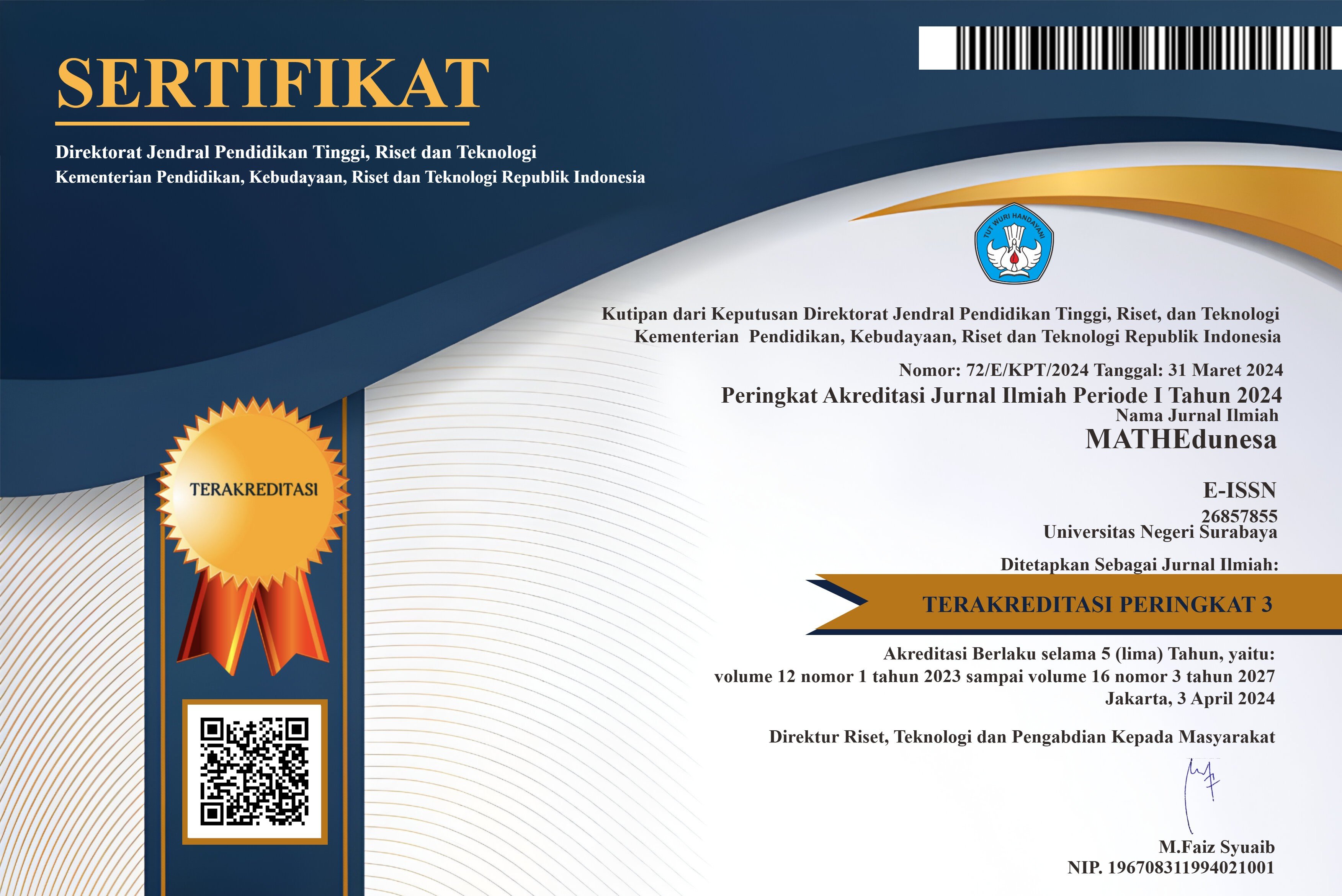Argumentasi Analogis Siswa SMA pada Masalah Analogi Tipe Prediktif
DOI:
https://doi.org/10.26740/mathedunesa.v12n3.p881-897Abstract
Analogy helps students find solutions to problems that involve new knowledge by referring to previously learned knowledge. Analogical argumentation plays a crucial role in supporting solutions to interconnected problems. Analogical argumentation itself is defined as the process of analyzing information from two similar and interconnected problems to provide logical reasons to justify conclusions. This research aims to describe the analogical argumentation of high school students on predictive analogy problems. This study uses a descriptive qualitative approach. The research subjects are three 10th-grade students from a public high school in Bojonegoro, selected based on the criteria of the source problem 1) claim being supported by grounds and warrant, 2) claim being supported by grounds, warrants focusing on congruence, and backing, 3) claim being supported by grounds, warrants focusing on square rotation, and backing. The data from the analogical argumentaion task and interviews were analyzed using predefined indicators by the researcher. The research findings indicate that students' analogical argumentation begins with identifying information, questions, and identical concepts between the two problems. Then, students make assumptions about the structure of the target problem in relation to the source problem, search for similarities in geometric properties, and discover relationships between the questions in both problems. Students engage in appropriate argumentation based on the source problem to predict conclusions for the target problem. They construct grounds and warrants based on the structure of analogical argumentation. Students tend not to double-check their answers because they are already confident with their stated conclusions.
Downloads
Downloads
Published
Issue
Section
 Abstract views: 151
,
Abstract views: 151
, PDF Downloads: 103
PDF Downloads: 103




